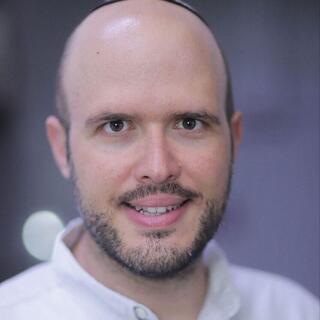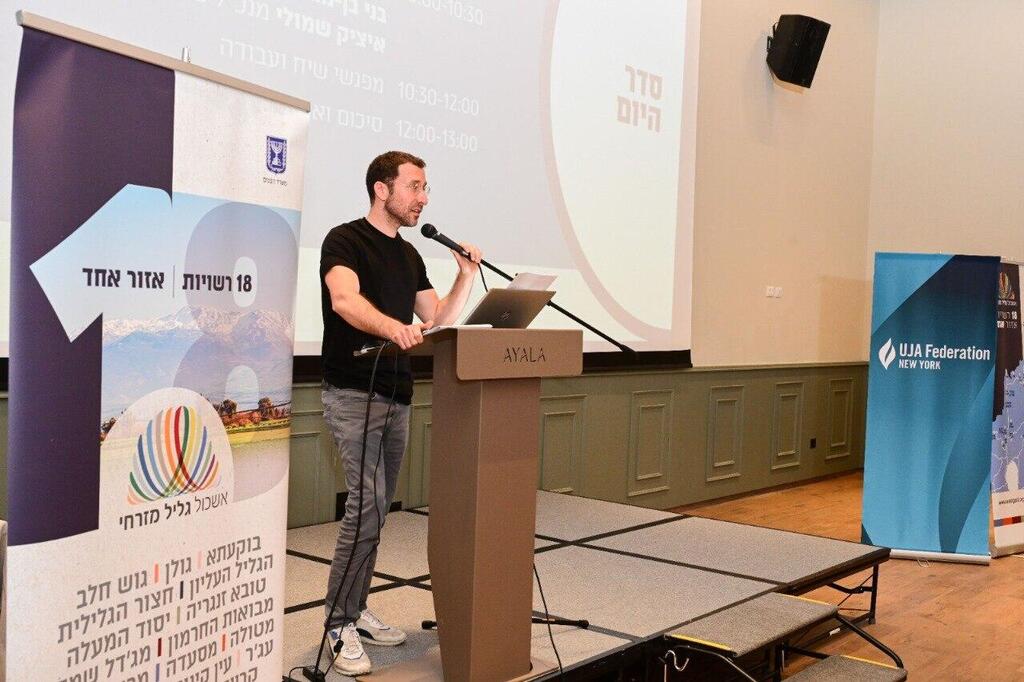While the government has yet to agree on an urgent response for over 60,000 displaced residents from northern Israel, along with tens of thousands remaining within 9 kilometers of the Lebanon border who haven't been evacuated, these residents have decided to take things into their own hands.
The UJA-Federation of New York and the Eastern Galilee Regional Cluster held a conference last week where kibbutz leaders and heads of evacuated communities gathered to plan the reconstruction of their communities amid the ongoing conflict.
4 View gallery
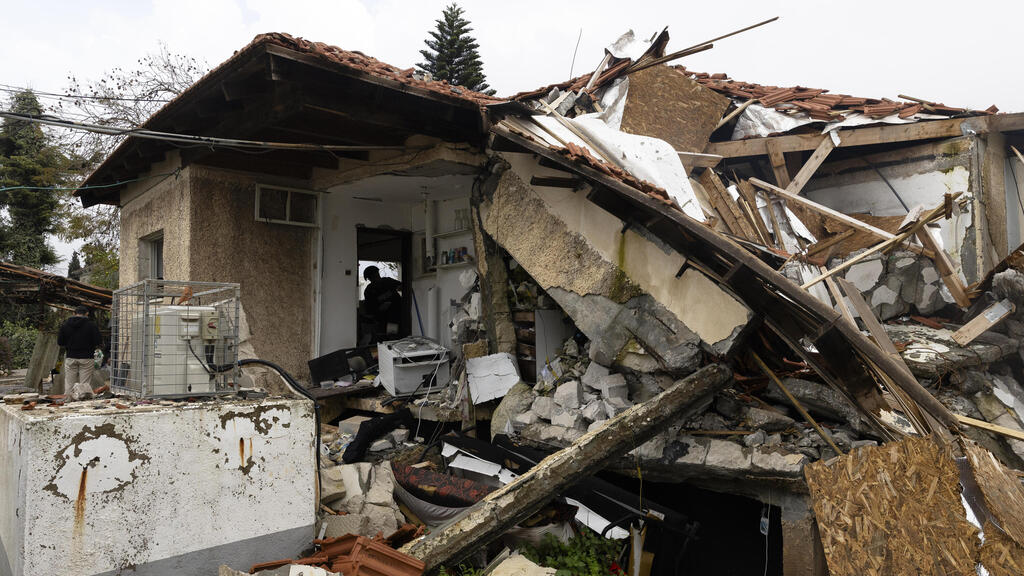

Home in Metula devastated after Hezbollah missile hit
(Photo: Amir Levy/Getty Images)
Representatives from 18 Eastern Galilee and Golan Heights municipalities, including 24 evacuated communities, spent the day discussing their residents' needs, struggles and critical issues over the past eight months, aiming to find solutions.
During the meeting, facilitated by the Eastern Galilee Regional Cluster's Resilience Center, community leaders proposed ideas to strengthen their residents, taking responsibility for their shared future and viewing the crisis as an opportunity for development in northern Israel's border areas.
They decided to focus on developing youth leadership initiatives, creating municipal and regional forums to empower the next generation, increasing community involvement and fostering a sense of belonging.
4 View gallery
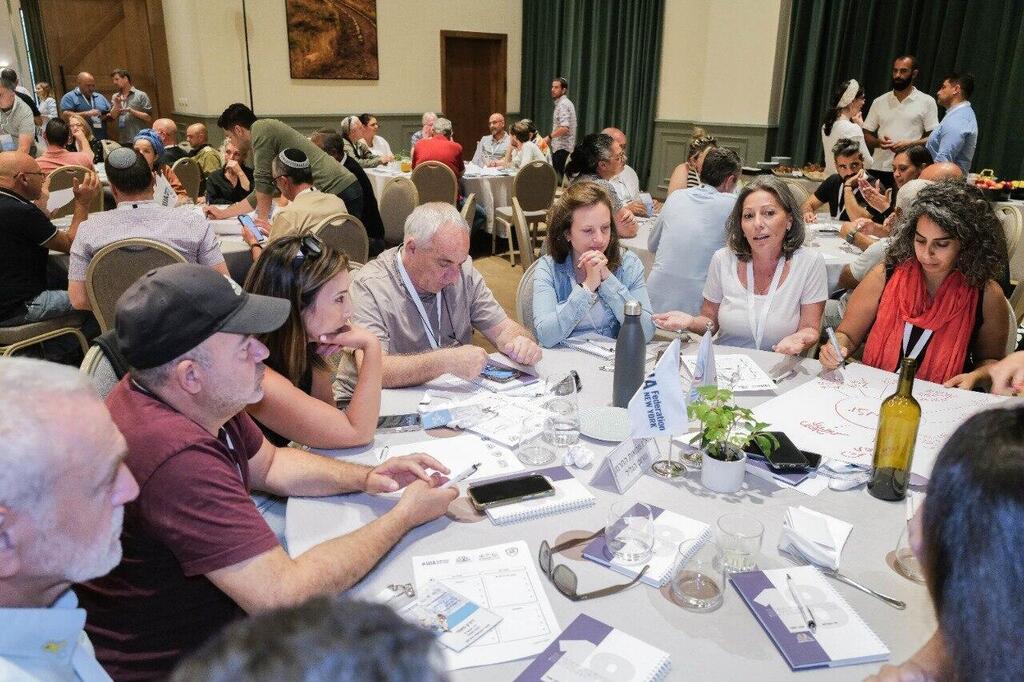

Northern Israel kibbutz leaders and heads of evacuated communities gather to plan reconstruction of their communities amid ongoing conflict
(Photo: Michael Giladi)
While the government and council leaders work on interim solutions, such as establishing temporary communities and educational systems in the north, local municipality leaders demand that the government prioritize efforts to return them home and ensure security in the area. They also aim to connect guest house and hotel property owners in the Galilee with evacuated families wishing to return.
Financial support for implementing the conference's decisions and needs has been provided by the UJA-Federation of New York, which has wired over $3 million to Eastern Galilee communities within 0-3.5 kilometers of the border.
Since the start of the war, the New York Federation has raised over $200 million to support northern and southern Israeli communities, allocating over $100 million to northern municipalities.
"We're here to stay, but we don't intend to replace the government," said Itzik Shmuli, director-general of the UJA-Federation of New York's office in Israel, in a conversation with community leaders.
"Our commitment isn't only for emergency support but also for recovery, and it is a steadfast one. Israel's national resilience depends on you," Shmuli added. "Terror's goal is to sow destruction and fear, to break our spirit and uproot us. Our response must be held with conviction — to renew life in the border communities through resources directed to bolster them."
Beni Ben Muvchar, chairman of the Eastern Galilee Regional Cluster and head of the Mevo'ot HaHermon Regional Council, emphasized the north's need for government aid, saying that the region's residents refuse to become Israel's "human shields."
4 View gallery
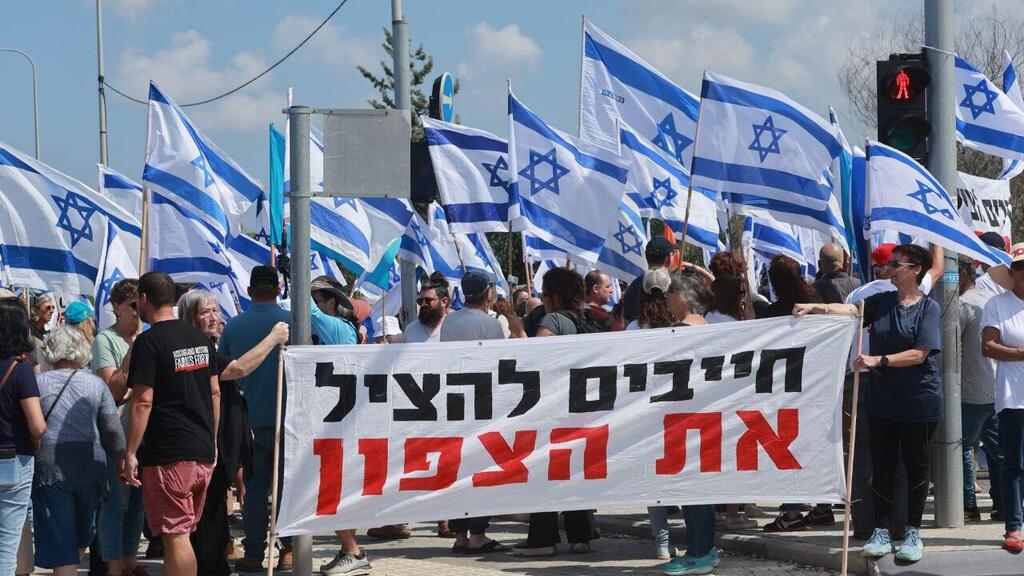

Protest calling for return of northern Israel residents to their homes
(Photo: Amir Yarchi)
According to him, "Since October 7, the Eastern Galilee area has become a military zone, something that must change." He thanked the UJA-Federation of New York, municipality heads, and community representatives for their efforts.
"They say you can know who's a true friend in moments of truth and distress. The UJA-Federation of New York's staff are true friends. From the moment the war broke out, the federation stood by us, proving that we can rely on them," he added.
"Their generous contribution, both to the municipalities and the evacuated communities, isn't taken for granted. The contribution will enable the implementation of community projects in the evacuated communities. We see your contribution as an expression of the deep connection between New York's Jewish communities and those in the Galilee and Golan Heights, one that started before the war and I'm sure will continue for many years in the future."



